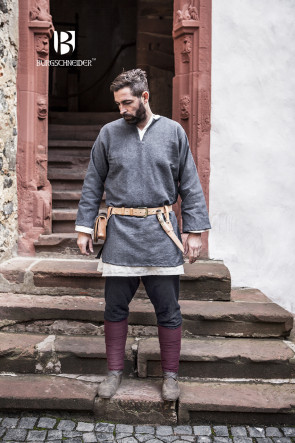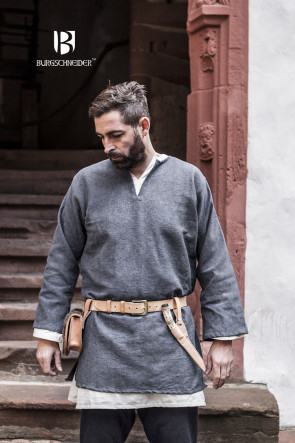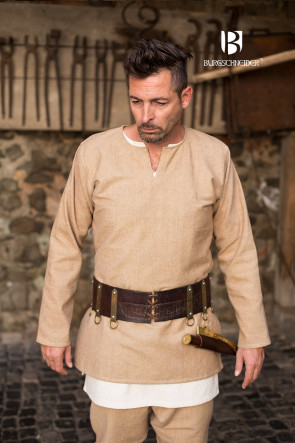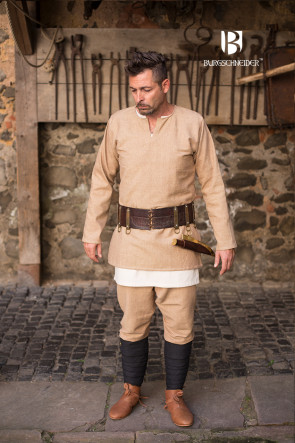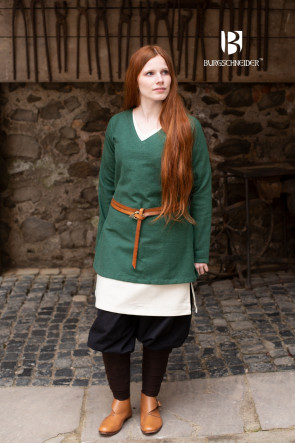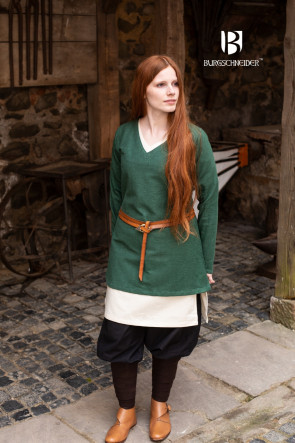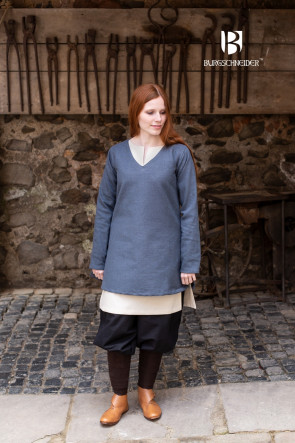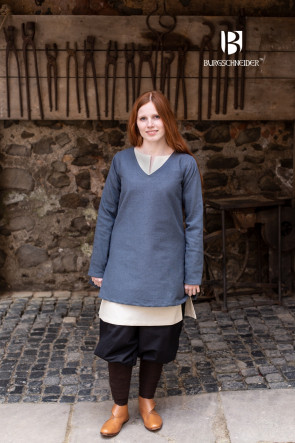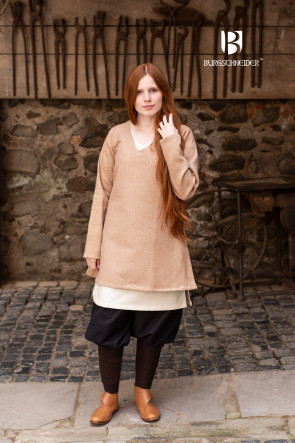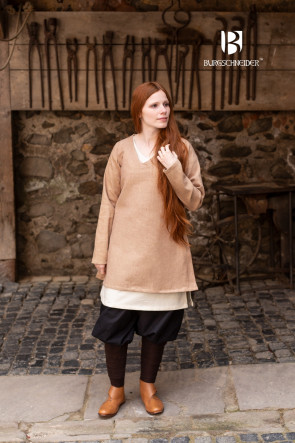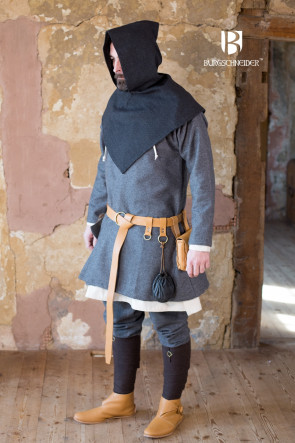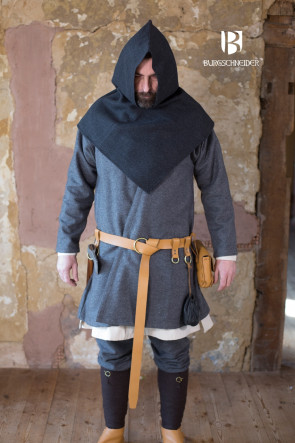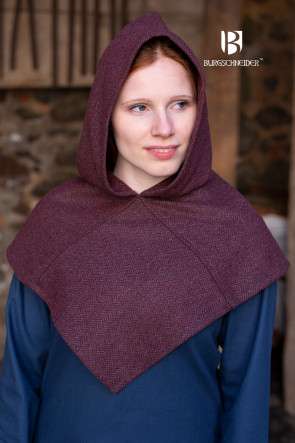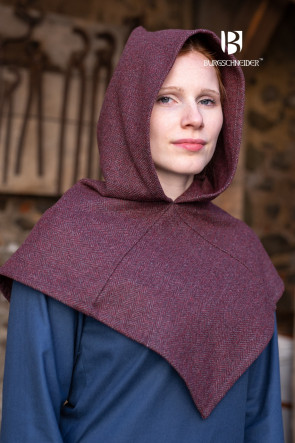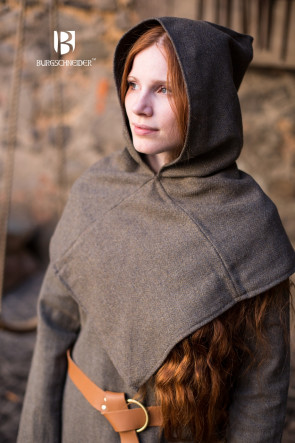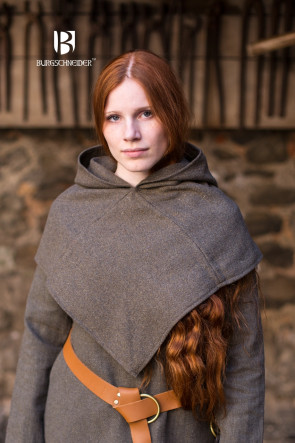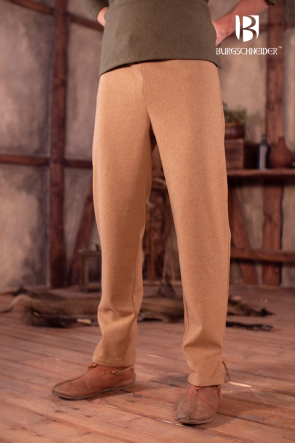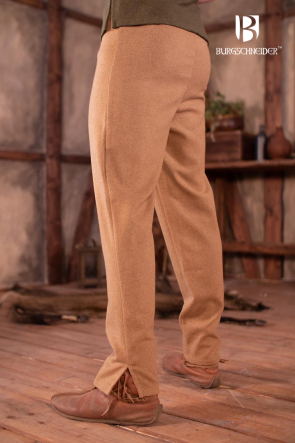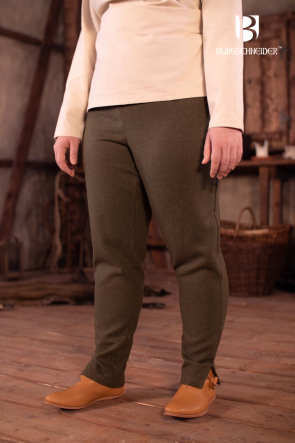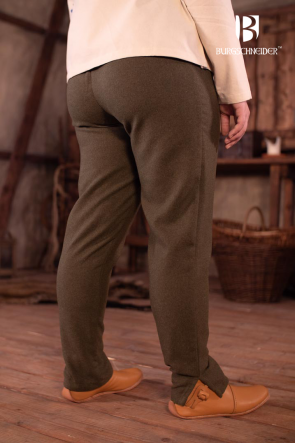Norse Collection
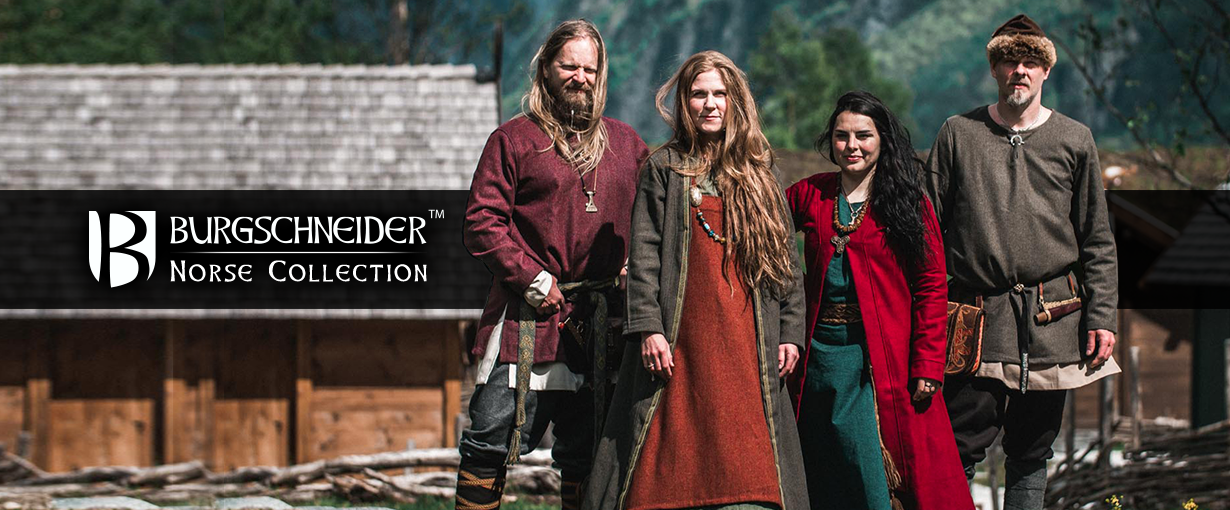
Whether for winter events, summer campaigns, medieval markets or visits to taverns - the historically based Norse line provides a perfect basis for many different Nordic costumes!
The cuts of the individual garments are based on historical Rus and Skjoldehamm finds.
Even though a few items are made of fine, warm wool blend fabrics, the majority of our collection is made of natural cotton.
-
Short tunic Erik - Grey
- Material: 100% Cotton
- Genre: Historic
- Sizes: S - XXXL
- Reference: Bernuthsfeld Tunic
£35.99 -
Short tunic Erik - Sand
- Material: 100% Cotton
- Genre: Historic
- Sizes: S - XXXL
- Reference: Bernuthsfeld Tunic
£35.99 -
Short Tunic Frekja - Green
- Material: 100% Cotton
- Genre: Historic
- Sizes: S - XXXL
- Reference: Bernuthsfeld Tunic
£35.99 -
Short Tunic Frekja - Grey
- Material: 100% Cotton
- Genre: Historic
- Sizes: S - XXXL
- Reference: Bernuthsfeld Tunic
£35.99 -
Short Tunic Frekja - Sand
- Material: 100% Cotton
- Genre: Historic
- Sizes: S - XXXL
- Reference: Bernuthsfeld Tunic
£35.99 -
Skjoldehamn Gugel Knud Herringbone - Black/Grey
The Skjoldehamn Cowl was discovered in a pagan grave from the first half of the 11th century. This is one of the first examples of the headgear "Gugel" itself.
Learn More
The hood has a basic square shape, characteristically the wide brim ends with a corner on the chest.
The grave find from Skjoldehamn raised many questions since its recovery in 1936 and still occupies today. According to current research, the dating of the pagan grave in the marshland is the first half of the 11th century. The hood of the gugel from Skjoldehamn has a simple square basic shape and a very wide brim which does not fall round but with a corner on the chest. This gugel is also a very early example of the type of headgear that became a ubiquitous garment in Europe during the Middle Ages.
In the course of research, attempts were made to assign the garment to a gender and cultural group. For this purpose, not only the DNA of the buried person was examined more closely but also the additional finds. The enclosed trousers determined the theory of the researchers that the person must have been male. DNA examination in 1999 showed no Y chromosome present in the bones which supported the theory that it had to be a woman instead. However, this methodology is considered outdated.
The question of culture points to Norway. This is assumed by ornamentation and morphological features which suggest that the buried person was a Sami tribal member. Further research is needed, as some key evidence for these hypotheses is still lacking. More modern DNA analysis and research into the history of the fashions of the various Sami groups will shed light on this.£35.99 -
Skjoldehamn Gugel Knud Herringbone - Burgundy/Grey
The Skjoldehamn Cowl was discovered in a pagan grave from the first half of the 11th century. This is one of the first examples of the headgear "Gugel" itself.
Learn More
The hood has a basic square shape, characteristically the wide brim ends with a corner on the chest.
The grave find from Skjoldehamn raised many questions since its recovery in 1936 and still occupies today. According to current research, the dating of the pagan grave in the marshland is the first half of the 11th century. The hood of the gugel from Skjoldehamn has a simple square basic shape and a very wide brim which does not fall round but with a corner on the chest. This gugel is also a very early example of the type of headgear that became a ubiquitous garment in Europe during the Middle Ages.
In the course of research, attempts were made to assign the garment to a gender and cultural group. For this purpose, not only the DNA of the buried person was examined more closely but also the additional finds. The enclosed trousers determined the theory of the researchers that the person must have been male. DNA examination in 1999 showed no Y chromosome present in the bones which supported the theory that it had to be a woman instead. However, this methodology is considered outdated.
The question of culture points to Norway. This is assumed by ornamentation and morphological features which suggest that the buried person was a Sami tribal member. Further research is needed, as some key evidence for these hypotheses is still lacking. More modern DNA analysis and research into the history of the fashions of the various Sami groups will shed light on this.£35.99 -
Skjoldehamn Gugel Knud Herringbone - Olive/Grey
The Skjoldehamn Cowl was discovered in a pagan grave from the first half of the 11th century. This is one of the first examples of the headgear "Gugel" itself.
Learn More
The hood has a basic square shape, characteristically the wide brim ends with a corner on the chest.
The grave find from Skjoldehamn raised many questions since its recovery in 1936 and still occupies today. According to current research, the dating of the pagan grave in the marshland is the first half of the 11th century. The hood of the gugel from Skjoldehamn has a simple square basic shape and a very wide brim which does not fall round but with a corner on the chest. This gugel is also a very early example of the type of headgear that became a ubiquitous garment in Europe during the Middle Ages.
In the course of research, attempts were made to assign the garment to a gender and cultural group. For this purpose, not only the DNA of the buried person was examined more closely but also the additional finds. The enclosed trousers determined the theory of the researchers that the person must have been male. DNA examination in 1999 showed no Y chromosome present in the bones which supported the theory that it had to be a woman instead. However, this methodology is considered outdated.
The question of culture points to Norway. This is assumed by ornamentation and morphological features which suggest that the buried person was a Sami tribal member. Further research is needed, as some key evidence for these hypotheses is still lacking. More modern DNA analysis and research into the history of the fashions of the various Sami groups will shed light on this.£35.99 -
Skjoldehamn Pants Magnus - Wool Camel
The Magnus Skjoldehamn Trousers are practical, extremely versatile and easily fit a huge variety of historical or fantasy characters. The trousers are made of a wool blend and can complement just about any shirt or tunic for an authentic medieval look. Slits along the cuffs allow them to fit over all kinds of boots and shoes. A drawstring and ribbon at the waistband allow the trousers to be fastened tightly without needing a belt. It’s the perfect choice for a low maintenance costume!
Learn More£55.99 -
Skjoldehamn Pants Sarina - Wool Olive
Made from wool blend fabric, these olive green trousers provide plenty of comfort and warmth. The Sarina Skjoldehamn Pants are a great choice for a wide range of medieval and fantasy characters. Slits along the cuffs allow them to fit over all kinds of boots and shoes. A drawstring and ribbon at the waistband allow the trousers to be fastened tightly without needing a belt. It’s the perfect choice for a low maintenance costume!
Learn More£55.99







